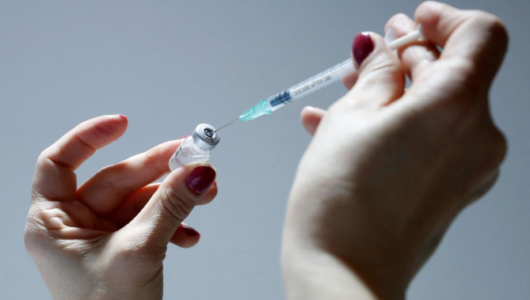Singapore Implements Policy as Booster Deadline Nears, Impacting Unvaccinated Employees
Currently, the government’s policy of fully covering COVID-19 medical expenses does not extend to individuals over 12 who have opted to remain unvaccinated by choice, she mentioned. This same rule will soon apply to adults over 18 who do not receive their booster shot within 270 days or nine months after their last dose, she explained.
Beginning on February 14, those aged 18 and older will be required to take a booster shot within 270 days of finishing their initial vaccination series to keep their fully vaccinated status against COVID-19. Ms. Rahayu raised the topic of medical bills while stressing the significance of vaccination, responding to NCMP Hazel Poa (PSP), who had put forward an adjournment motion regarding vaccination-differentiated safe management measures.
UNVACCINATED EMPLOYEES’ LIVELIHOODS AT RISK: HAZEL POA
Ms. Poa expressed her concern, stating that the most recent vaccination-differentiated measures, effective January 15, would bar unvaccinated workers, except for those with medical exemptions, from returning to the workplace, even with a negative pre-event test. According to her, this measure endangers the livelihoods of unvaccinated employees, referring to it as a “licence to terminate.” While acknowledging the government’s concerns for unvaccinated workers’ health, she emphasized that these individuals likely have valid personal reasons for not getting vaccinated.
Ms. Poa added that being skeptical about vaccination is not unreasonable, especially in the face of a new situation where there are gaps in knowledge. She called for a breakdown of unvaccinated employees by age and sector, questioning how many may lose their jobs due to this policy. “Has the government thoroughly studied the impact on the 52,000 unvaccinated employees and the unknown number of self-employed individuals?” she asked, citing figures provided by the Ministry of Health on December 19. She stressed that measures affecting livelihoods must be taken seriously.
48,000 UNVACCINATED WORKERS
In response, Ms. Rahayu said the move was backed by tripartite partners who recognized both the public health necessity of vaccination and the need to keep business operations going to safeguard livelihoods. “A fully vaccinated workforce will be able to function more safely and sustainably,” she stated.
Providing updated figures, Ms. Rahayu noted that, as of January 2, 48,000 workers had not yet received a single dose of the vaccine, down from the 52,000 reported on December 19. Of these, about a third, or 16,000, are aged between 30 and 39. Additionally, she mentioned that workers who are medically certified as ineligible for vaccines under the national vaccination program will still be allowed to return to the workplace, as they make up just 0.3% of unvaccinated workers, a very small group.
Addressing a separate concern raised by Ms. Poa, Ms. Rahayu clarified that there are no current plans to extend vaccination-differentiated measures to children in community, public, preschool, or school settings for those aged 12 and under. For now, the focus remains on ensuring children are adequately protected from COVID-19. “We will continue reviewing our policies as the vaccination program for children aged 5 to 11 progresses,” she concluded.








